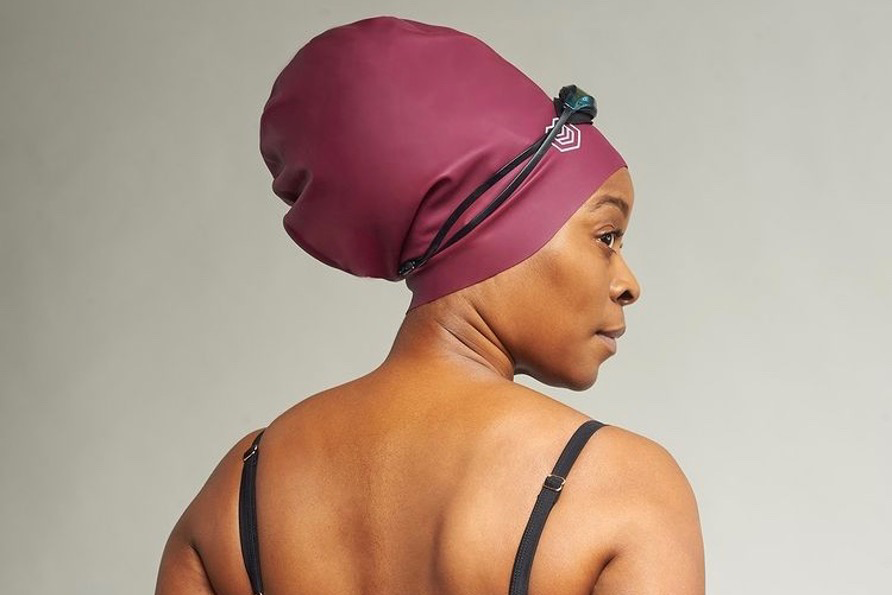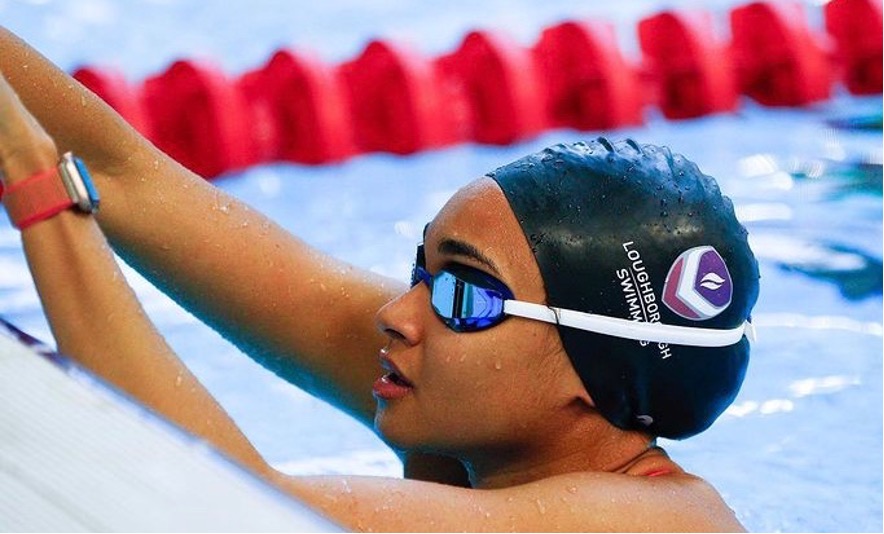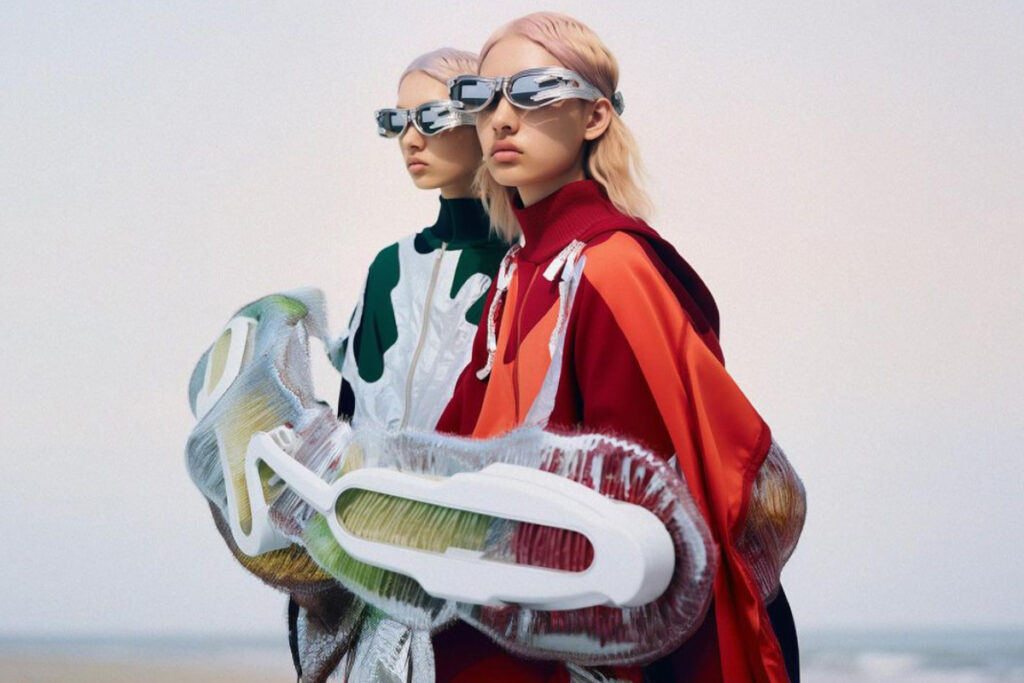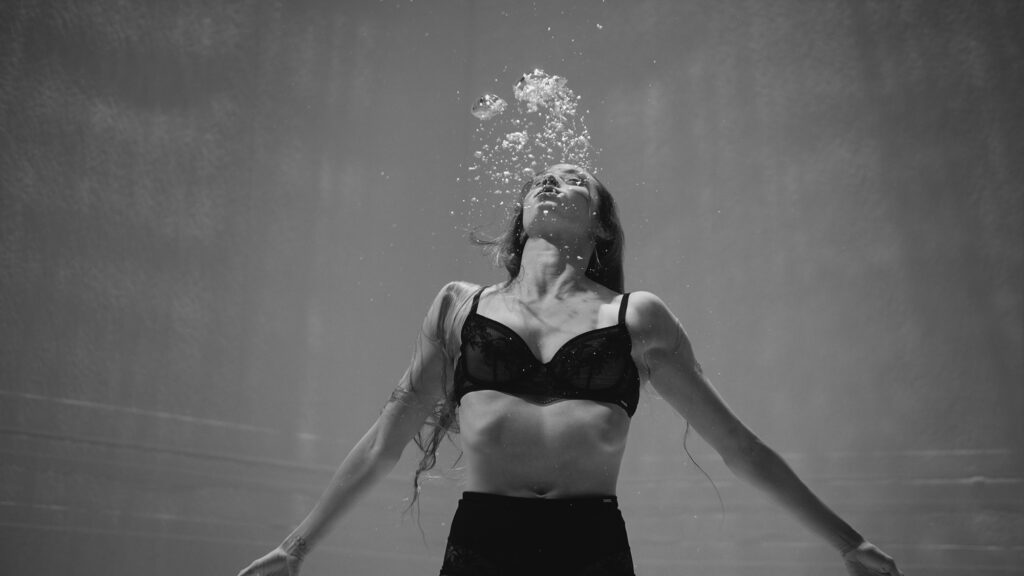Many of us who have watched the Olympics held in Tokyo this summer heard of Alice Dearing, the first black female swimmer representing the UK at the Olympics. Why did we hear about her? She was the woman who was rejected by the International Swimming Federation (FINA) because she was not allowed to use her Afro swimming cap at the Olympics. FINA spoke about this ban on those caps with the argument that they would not be shaped like the natural head and there would be no need to use the caps shaped for afro hair.
Those specific swimming caps were designed for natural hair created by the British brand Soul Cap, which Alice Dearing is a partner of. Soul Cap does not only want to sell swim caps but also wants to carve out a space for Black people in the swimming community.
The Soul Cap was designed to provide better protection for curly thick hair from chlorine in the water. FINA’s ban of these caps specifically affects Black women with a lot of hair. This ban is seen by many as a symbol of just one more barrier for Black people to participate in professional sports.
Many of the fashion trends we have today can be traced back to Black culture. Fashion trends such as sneakers, hoop earrings, camouflage pants, and bucket hats, were popularised by Black hip hop artists and influencers, and these past few years, we are seeing these trends absolutely dominate contemporary culture.

Source: Soulcapofficial
After FINA’s ban, the founders of Soul Cap stated that they fear young swimmers could feel like they have to choose between their hair and swimming, thus excluding them from the sport.
Statistics of Swim England discovered that of regular swimmers only two percent are Black, making professional swimmers of colour very rare. Not only that, 95 percent of Black adults and 80 percent of Black children in the UK are not able to swim or not comfortable enough to learn it.
The Black Swimming Association states that this shows once again the lack of diversity in sports, but particularly in swimming.
While it it true that afro hair is more vulnerable to chloride water and hair is a crucial part of Black culture, hair is not the main reason that swimming, historically speaking, has been a predominantly white sport. We can’t forget that for example, pools in the USA were segregated until a mere 70 years ago. The swimming community doesn’t have a history of including the Black community, and things like the ban on the caps can make Black people may well be past discriminatory policies in disguise.

Source: Soulcapofficial
This also shows how issues like that are ignored when we want to and the Black community is supported when we want to. Or maybe we just decide that it is okay to copy black culture such as wearing Black hair styles as dreadlocks, braids, cornrows. But then we do not like to support swim caps like Soul Caps. This shows that there are still a lot of equality and cultural appropriation issues in our society as we can choose what we support or what we can wear and, in this case, Black people cannot.
As a response to all the backlash over its ban, FINA seems to understand the importance of the issue as they consider reviewing the ban of the Soul Caps. Let’s hope that this will be a first step of many to reduce the barriers for Black people to participate in swimming. And even more importantly, reviewing this ban could also be a statement towards showing a continuous support for the Black community, rather that nitpicking whatever is convenient for white people.
What Does The Ban Of Swimming Cap For Afro Hair Say About How Far We Are From Equality?
Subscribe to stay informed of everything in our world
“How did you two meet?” A commonly asked question couples face in contemporary social environments. While our parents have likely met through mutual connections, a significant share of modern love stories start with a digital Cupid in the shape of […]
Explore the Retreat Revolution: Say farewell to wild vacations, and hello to self-discovery, with a reminder to give back to our communities and cultures. […]
Ladies and gentlemen, gather around as we celebrate the brilliant minds orchestrating the symphony of creativity: The Creative Directors! […]
As society continues to evolve, so too will our understanding of relationships and love. It seems like non-monogamy is doing just that. […]
We have gathered here today dear TNCes, to raise our glasses to the unsung heroes of the creative industry: Here, here Producers! […]
The possibility of a habitable planet has sent ripples through the scientific community, but just how meaningful is it? […]
They say beauty is subjective. They say it’s in the eye of the beholder. Yet few dare to contest beauty standards in society. Jackson Bowley dares. […]
There may be fewer World Cup advertisers this year, but the ones that showed up, showed up guns a blazing! […]
Whether we like it or not, ads are all around us. So let’s have a bit of a reflection on some of the major changes experienced by advertising since its inception. […]













